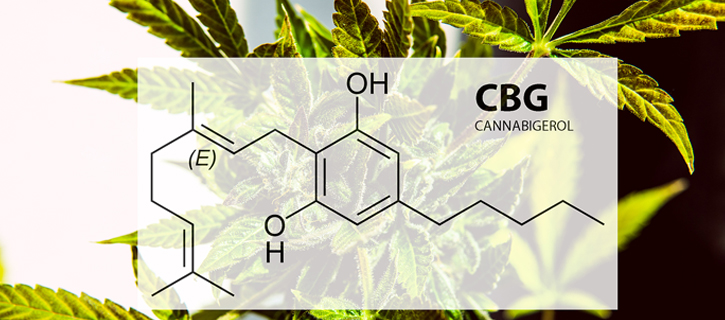Over the last several years, the CBD industry has really taken off — which has led to an increased need for insurance products for CBD manufacturers and retailers. But while CBD and THC are the most well-known cannabinoids, other compounds such as CBG and CBN are starting to get more attention.
Like CBD, CBG and CBN are naturally occurring compounds derived from the cannabis or hemp plant that interact with the body’s endocannabinoid system and produce a number of therapeutic effects. Unlike THC, CBD, CBG and CBN are non-psychoactive, meaning they don’t produce a “high,” or mind-altering effect.
While researchers are still working to understand the intricate workings of the endocannabinoid system, both CBG and CBD show potential in assisting in alleviating pain, relieving anxiety and depression, improving skin health, offering neuroprotective benefits, and in the management of cancer and other health conditions.
In-vitro and animal testing have identified CBG to help inflammation, neurological disorders, pain, and skin conditions such as eczema and psoriasis. Researchers have also found it may help address glaucoma and relieve intraocular pressure; has antibacterial properties that can help with MRSA; aids in muscle relaxation and tension relief, could help relieve inflammation related to colitis, Huntington’s, and inflammatory bowel disease; may help inhibit the growth of certain cancer cells; and, may help prevent or slow the progression of neurodegenerative diseases. And, they are beginning to find some evidence that the beneficial effects of CBD and CBG may be magnified when combined and taken together. But, much of this research is still in the early stages, so the full potential of CBG has yet to be realized.
The US government is even interested in the potential uses of CBG. In 2018 The National Center for Complementary and Integrative Health (NCCIH), a government agency which explores complementary and alternative medicine, announced an intent to research minor cannabinoids including CBG that could help manage pain.
CBG’s Short Growth Cycle Has Industry Insiders Excited
The increased interest in CBG by medical researchers and the general public has business owners excited as well. Many see CBG as the next compound that has the potential to rival CBD in popularity, and believe it is poised to see significant market growth. Adding to this excitement is the fact that CBG, which is known as the “mother cannabinoid,” is typically present in higher concentrations in young hemp or cannabis plants, and is converted into CBD, THC and other cannabinoids as the plants mature.
This means that CBG has a shorter growth cycle than other cannabinoids, so plants can be harvested earlier, presenting a potential opportunity for growers and manufacturers to increase production and decrease costs. For now, however, CBG is still six times more expensive to extract compared to CBD, mainly because it is present in such low concentrations in current harvests. But, with geneticists selectively breeding plants with the goal of increasing the CBG yield, and other researchers exploring the ideal growing conditions and age to harvest the crops, there is a good chance we will see a dramatic increase in CBG products in the coming years.
CBG Isn’t Regulated As Heavily As CBD
Another reason many manufacturers are excited about CBG is that it is not subject to the same FDA regulations as CBD. This is because CBD is the active ingredient in an FDA-approved drug called Epidiolex, an anti-seizure medication. While classifying CBD as a drug helps lend credibility to some of its therapeutic uses, it also means that the FDA will not approve the sale of CBD as a dietary supplement. CBG, however, has not been classified as a drug, which means there are fewer regulatory hurdles, particularly when it comes to manufacturing and selling ingestible products that contain CBG.
Internationally, CBG is not listed on the schedules set out by the U.N. and does not appear to be controlled by any other international treaty. This means that countries are not required to control CBG, making it ripe for export to international markets.
Related: CBD Oil Processors: A Rapidly Growing Insurance Market
What You Need to Know About CBD and CBG Insurance
When it comes to liability exposure, the risks for CBD and CBG manufacturers and retailers are very similar. It also helps that many of the companies getting into the CBG market already manufacture and sell CBD products, which means they should have proven methods in place for extraction and purity testing, understand what claims can and cannot be made about their products’ purported health benefits (CBD, CBG and related products cannot be promoted to cure or treat diseases), and know what other warnings they may need to include on their products to be in compliance with state laws, such as California Prop 65.
Admiral Insurance Group is a leading provider of product liability insurance for CBD, CBG, CBN and other nutraceuticals and dietary supplements, as well as hemp, and cannabis or THC products.
If you are a wholesale broker in need of an insurance partner with deep expertise in the dietary supplement and nutraceutical industry, contact us to become an appointed broker. If you are a retail agent or broker with clients in marijuana, hemp or industry, we encourage you to connect with one of our wholesale broker partners.
Products and services are provided by one or more insurance company subsidiaries of W. R. Berkley Corporation. Not all products and services are available in every jurisdiction, and the precise coverage afforded by any insurer is subject to the actual terms and conditions of the policies as issued. Certain coverages may be provided through surplus lines insurance company subsidiaries of W. R. Berkley Corporation through licensed surplus lines brokers. Surplus lines insurers do not generally participate in state guaranty funds and insureds are therefore not protected by such funds.

.png?width=214&height=60&name=bg-nav@2x%20(1).png)

